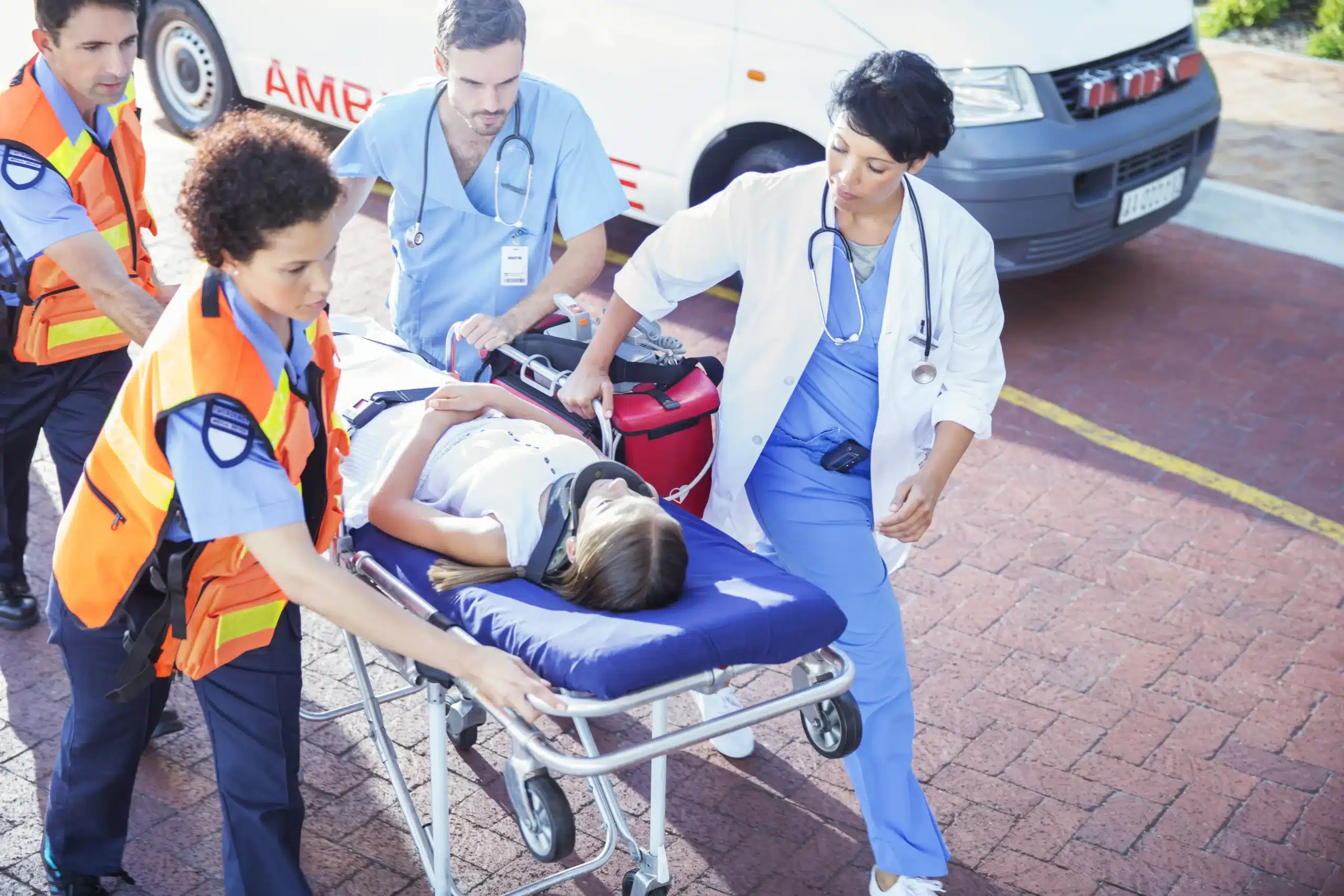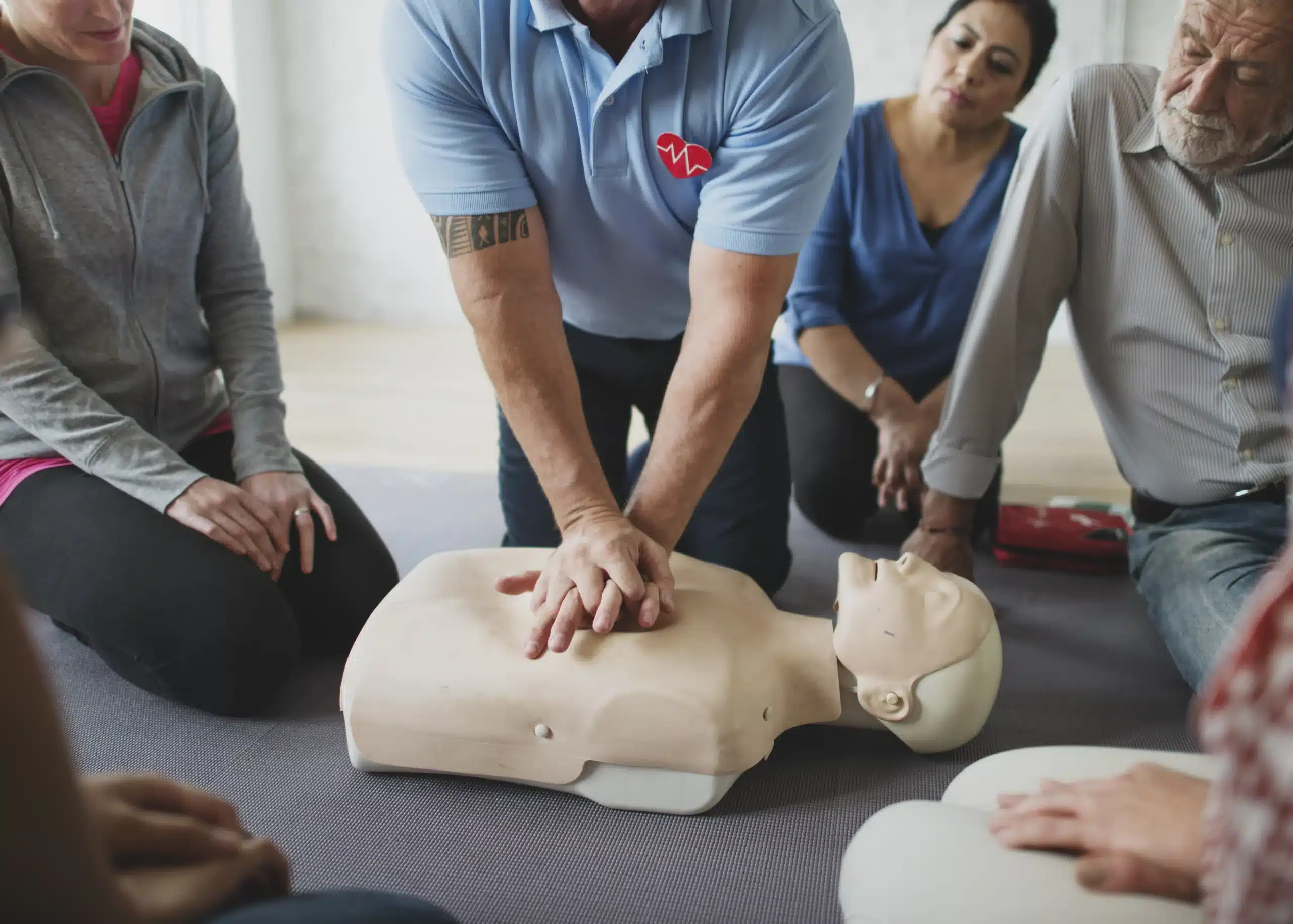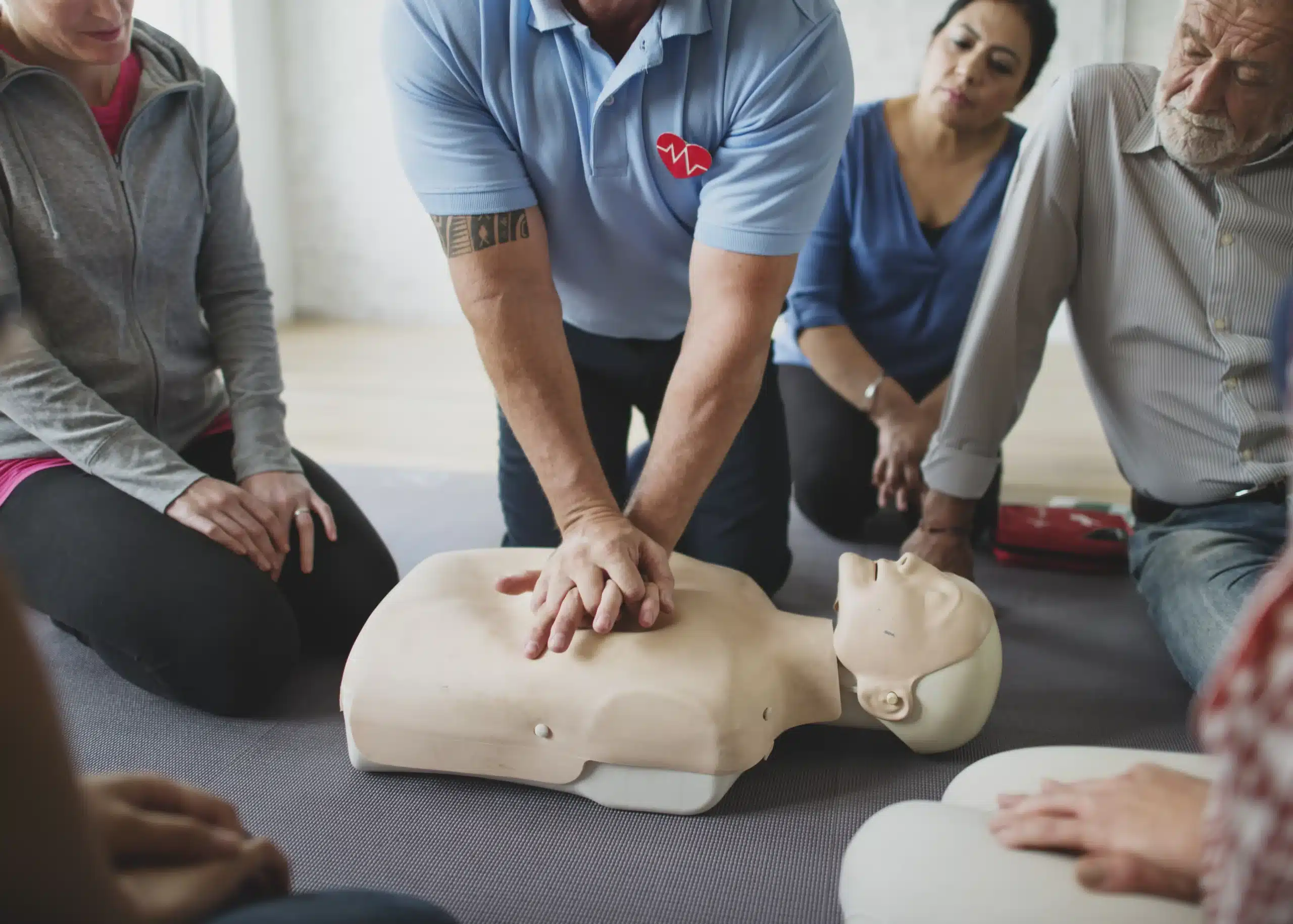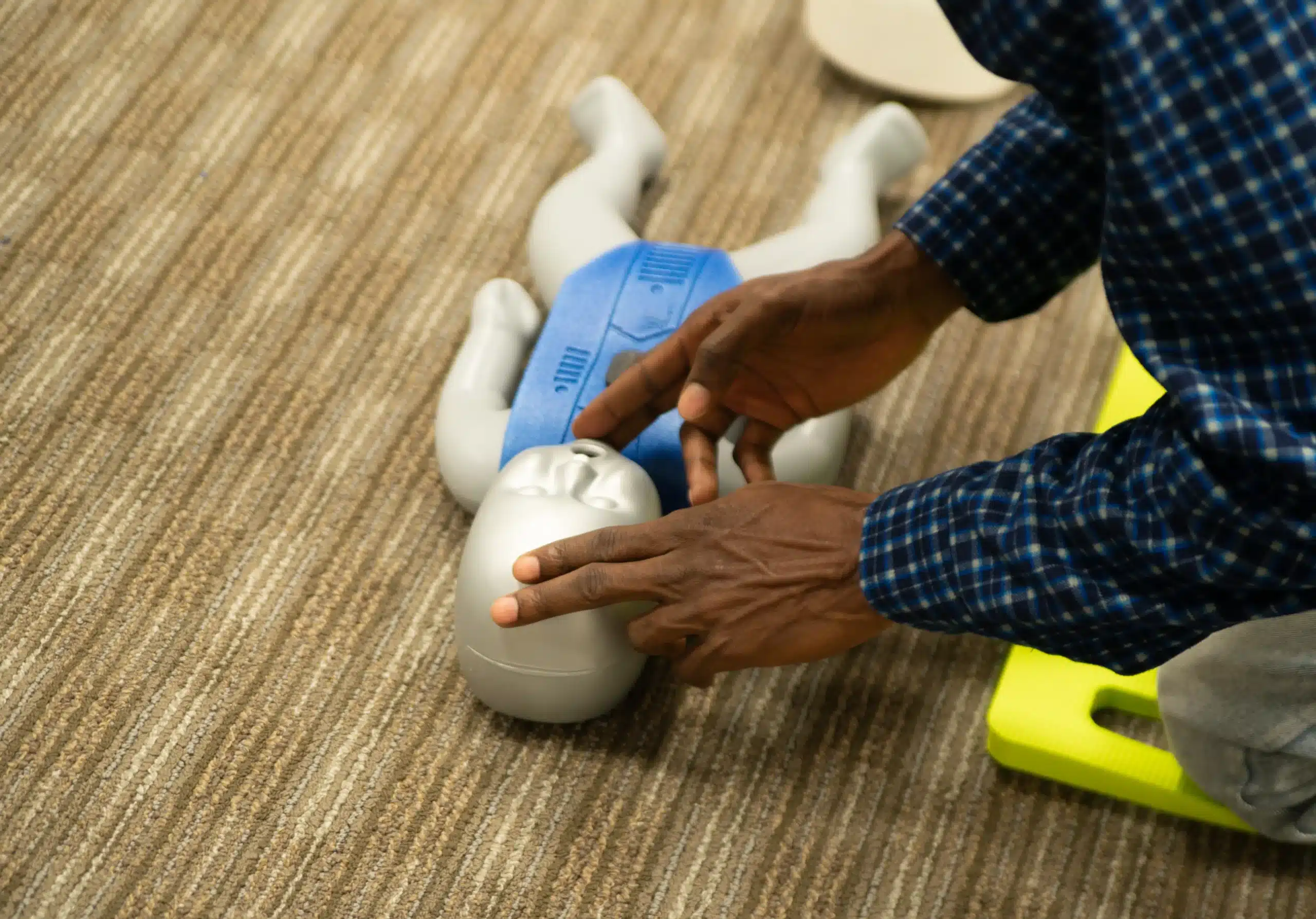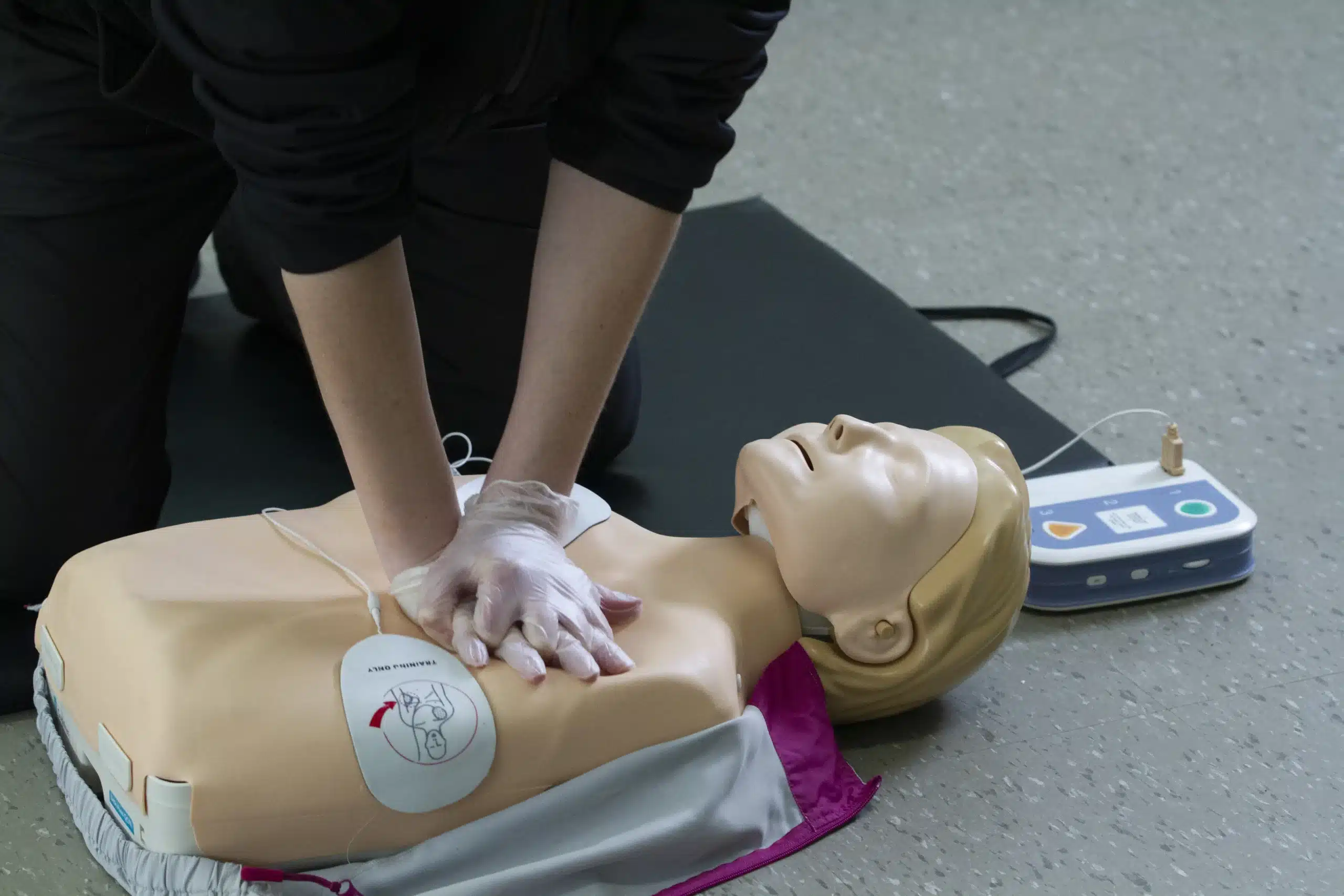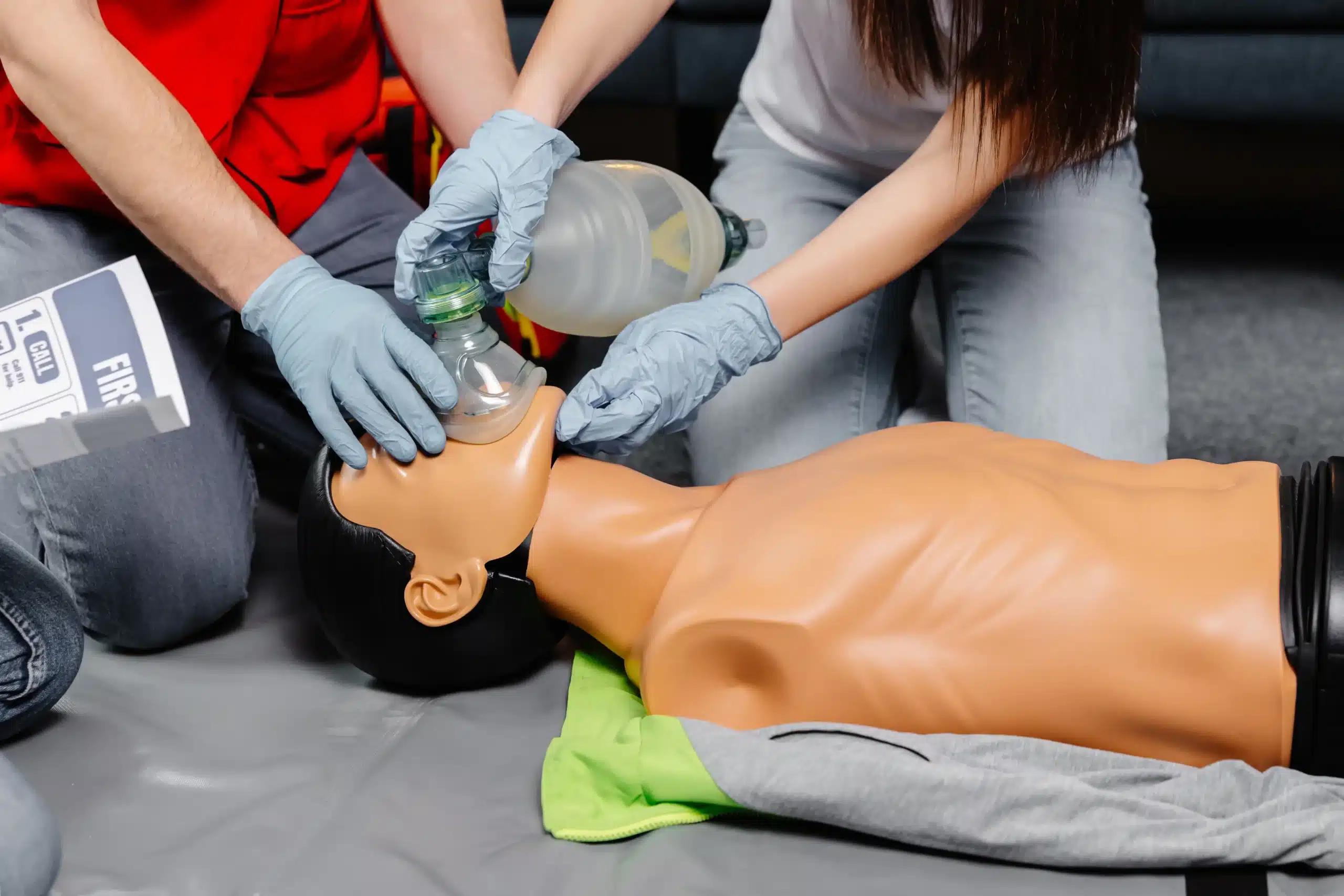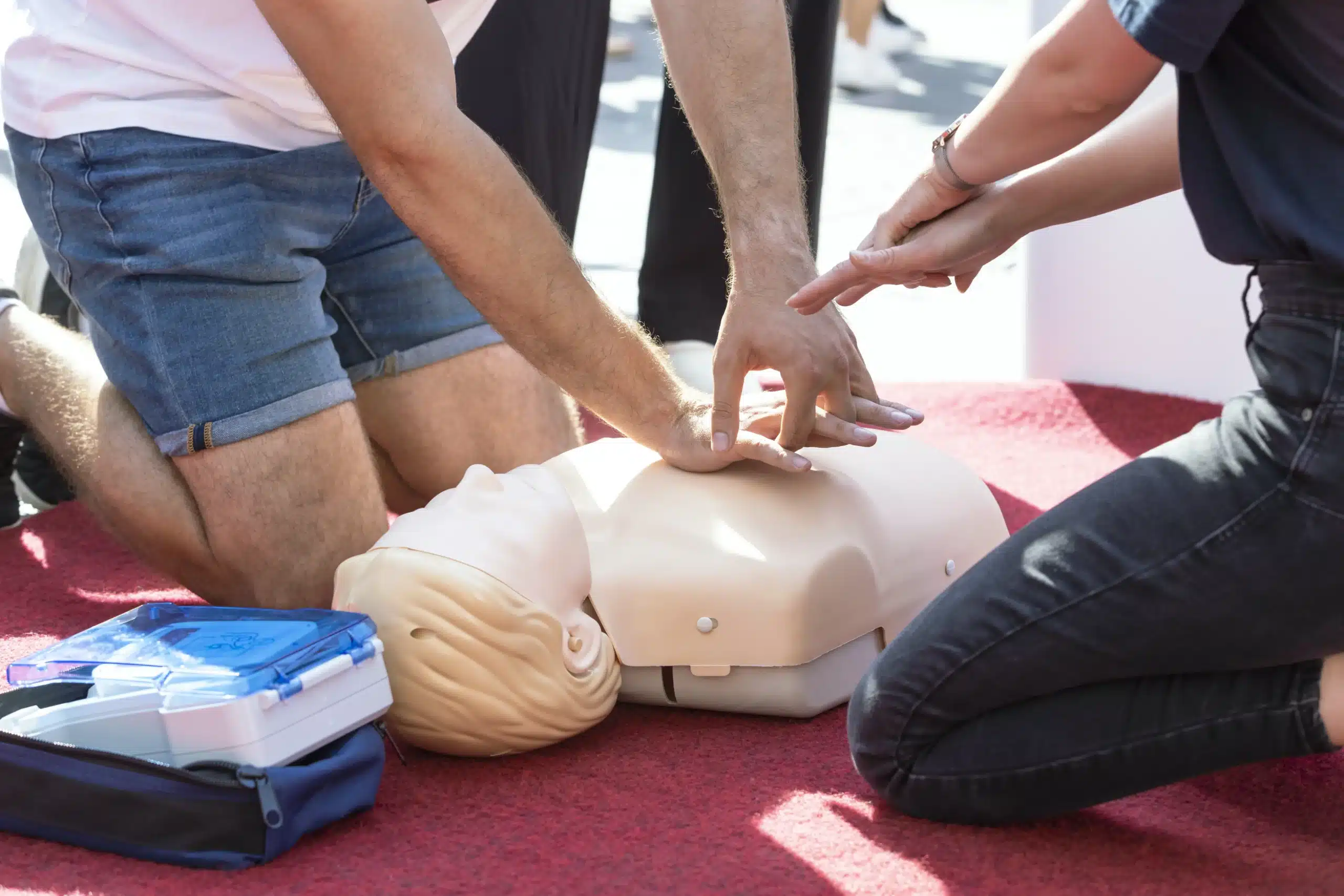Life can throw curveballs, and knowing how to respond in a medical emergency can make all the difference. CPR certification equips you with the skills and confidence to act when seconds count. This guide breaks down the essentials of CPR training, from choosing the right certification level to finding convenient classes near you. Whether you’re a healthcare professional seeking recertification or someone simply looking for “CPR certification near me,” we’ll walk you through the process step by step. We’ll also cover important aspects of maintaining your skills and staying up-to-date with the latest guidelines.
Key Takeaways
- Find the Right CPR Certification: Explore various CPR certifications, from basic to advanced, and choose one that aligns with your specific needs and career goals. Consider factors like industry requirements and preferred learning formats (in-person, online, or blended).
- Understand Certification Costs and Options: CPR certification costs vary based on the course level and provider. Compare prices, explore discounts (like group rates), and check for low-price guarantees to maximize your training investment.
- Maintain Your Life-Saving Skills: Keep your CPR skills sharp by practicing regularly and renewing your certification before it expires. Consider additional training opportunities to expand your knowledge and enhance your ability to respond effectively in emergencies.
What are My CPR Certification Options?
Knowing your CPR certification options is the first step. While you don’t technically need a certification to perform CPR in an emergency, having proper training ensures you can provide effective assistance. Explore a range of certification options, from basic CPR to advanced life support, and choose the course that aligns with your individual needs and schedule. We’ll break down the different types of courses, learning formats, and certifying organizations so you can make an informed decision.
Types of CPR Certification Courses
CPR certifications range from basic life support to advanced specialized training. Basic CPR courses teach adult, child, and infant CPR, along with how to use an automated external defibrillator (AED). More advanced certifications, like ACLS (Advanced Cardiovascular Life Support) and PALS (Pediatric Advanced Life Support), are geared towards healthcare professionals and cover more complex scenarios. There are also specialized certifications, such as RQI (Resuscitation Quality Improvement), designed for healthcare providers needing to maintain and demonstrate advanced resuscitation skills.
In-Person, Online, or Blended Learning: Which Format Suits You?
Finding the right CPR class format is key to successful learning. In-person classes offer hands-on training and direct interaction with instructors. Online CPR classes provide flexibility and convenience, allowing you to learn at your own pace. Blended learning combines online coursework with in-person skills sessions, offering a balance of flexibility and practical experience. While the AHA doesn’t directly offer online courses, they accredit organizations like Campbell CPR Classes that deliver high-quality training based on their guidelines.
Who Offers CPR Certification?
Several organizations offer CPR certification, each with its own approach and focus:
-
American Heart Association (AHA): The AHA is a leading authority on CPR and offers widely recognized certifications, particularly for healthcare providers. They emphasize high-quality training based on the latest scientific guidelines. For example, you can find more information about AHA BLS certification on the Campbell CPR Classes website.
-
American Red Cross: The Red Cross is another well-known provider of CPR training, focusing on community-based courses and disaster relief. Their certifications are generally accepted by a wide range of employers.
-
Campbell CPR Classes: Campbell CPR Classes offers a range of options, including BLS, ACLS, PALS, and First Aid. As a woman-owned AHA Training Center, they are committed to excellent customer service and offer a low price guarantee for classes in the area. Check out their group discounts for businesses and organizations. Contact them today to learn more about their CPR training.
-
National Safety Council (NSC): The NSC provides comprehensive safety training programs, including CPR certification, often geared towards workplace safety requirements.
-
American Safety & Health Institute (ASHI): ASHI focuses on occupational safety and health training, offering CPR and first aid certifications that meet OSHA requirements.
How Do I Choose the Right CPR Certification?
Choosing the right CPR certification involves understanding your industry requirements, employer preferences, career goals, and the time commitment involved. Let’s break down these factors to help you make the best decision.
Certifications Required by Your Industry
Different industries have specific requirements for CPR certification. Healthcare providers, for example, typically need a more comprehensive certification than someone working in a non-healthcare setting. Before you sign up for a class, research the certifications required or recommended in your field. Accredited programs from recognized health organizations ensure your training meets industry standards and is recognized by employers. For those in education, childcare, or healthcare, certifications from the American Heart Association are often preferred.
Which Certifications Do Employers Value Most?
While several organizations offer CPR certification, the American Heart Association (AHA) certification is widely accepted, especially by healthcare employers. It’s known for its comprehensive and rigorous training, covering a broader range of emergency situations. For many employers, AHA certification signifies a higher level of preparedness. If you’re aiming for a career in healthcare, an AHA certification can give you a competitive edge.
Matching Certification to Your Career Goals
Your career aspirations play a significant role in choosing the right CPR certification. Are you pursuing a career in healthcare, or do you need certification for a specific job requirement? Basic CPR and First Aid might suffice for general workplace safety, but healthcare professionals often require BLS, ACLS, or PALS certification. Consider also specialized certifications like RQI for healthcare professionals maintaining competency in high-quality CPR. Align your certification choice with your current role and future career goals.
How Long Does Certification Take?
The time commitment for CPR certification varies depending on the course and level. Basic CPR courses can often be completed in a few hours, while more advanced certifications like ACLS and PALS may require a full day of training. Consider your schedule and choose a course format that fits your availability. Campbell CPR Classes offers flexible scheduling options, including discounted group classes, to accommodate busy professionals and individuals.
How Long is My Certification Valid, and How Do I Renew It?
Most CPR certifications are valid for two years. To maintain your skills and credentials, you’ll need to take a renewal course before your certification expires. Renewal courses are typically shorter than initial certification courses and focus on refreshing your knowledge and updating you on any changes in CPR techniques. Plan and schedule your renewal course in advance to avoid any lapse in your certification. Campbell CPR Classes offers a low price guarantee, ensuring you receive high-quality training at the best possible price.
How Much Does CPR Certification Cost?
CPR certification costs vary, so it’s helpful to understand what influences pricing before signing up for a class. Let’s break down the typical costs associated with CPR training and explore some ways to find the best value.
Typical Course Fees
Generally, CPR certification costs between $20 and $150, depending on the certification level, the training provider, and whether you choose online or in-person training. Basic CPR classes tend to be on the lower end of that range, while more advanced certifications like ACLS (Advanced Cardiovascular Life Support) or PALS (Pediatric Advanced Life Support) typically cost more. Sometimes, course materials are a separate expense, so factor that into your budget.
Comparing Costs: Local vs. Online Training
Both local and online CPR training have cost advantages. Online CPR courses are often more affordable upfront, but they may not include the hands-on practice required for some certifications. Local classes provide in-person instruction and the opportunity to practice skills with certified instructors, but they might be more expensive because of overhead costs. Blended learning, which combines online coursework with in-person skills sessions, offers a balance of cost and experience.
Deals and Discounts
Many training providers offer deals and discounts, especially if you combine CPR training with first aid certification. Look for these opportunities to save money while gaining valuable skills. Some providers also offer discounts for groups, making it a cost-effective option for businesses needing to certify multiple employees.
Group Discounts for Businesses and Organizations
If you’re certifying a group of employees, see if the training center offers group discounts. Campbell CPR Classes offers discounted rates for group training, making it easier and more affordable to equip your team with life-saving skills. This can be a significant cost saving for businesses, schools, or community groups.
Campbell CPR Classes’ Low Price Guarantee
Campbell CPR Classes is committed to providing high-quality, affordable CPR training. We offer a Low Price Guarantee, ensuring you receive the best possible value. Contact us to learn more about our pricing and courses.
How Do I Find and Prepare for CPR Classes Near Me?
Finding the right CPR class can feel overwhelming, but with a little planning, you can find the perfect fit. Start by considering what type of certification you need and how you prefer to learn. Then, explore local training centers and compare their offerings. A quick online search for “CPR classes near me” will generate a list of providers in your area.
Local Training Centers and Providers
Depending on your location, you’ll find various organizations that offer CPR certification courses. Nationally recognized providers like the American Red Cross and the American Heart Association offer classes across the country. You can also find training through community colleges, hospitals, and local businesses like Campbell CPR Classes.
What Campbell CPR Classes Offers
Campbell CPR Classes provides a range of American Heart Association certification courses, including BLS, ACLS, PALS, CPR, and First Aid. We also offer specialized training like EMSA Child Care Health & Safety and discounted group classes. Our focus is on providing excellent customer service and the lowest prices in Santa Clara County. We also offer convenient RQI classes for healthcare professionals seeking to maintain their resuscitation skills. You can learn more about our RQI offerings here.
Class Schedules and Flexibility
One of the first things to consider is your schedule. Do you need a weekday class, a weekend option, or perhaps an evening course? Many training centers offer flexible schedules to accommodate busy lifestyles. Campbell CPR Classes, for example, offers classes seven days a week, from 8 am to 10 pm. Online CPR classes offer even more flexibility, allowing you to learn at your own pace.
Find Nearby Classes Online
Searching online is the easiest way to find CPR classes near you. Use a search engine or check the websites of organizations like the American Red Cross or the American Heart Association to locate classes in your area. You can often filter by date, time, and course type to find the perfect fit.
What to Expect During Training
CPR training combines classroom instruction with hands-on practice. You’ll learn the core skills of CPR, including chest compressions and rescue breaths. Expect to practice on a CPR training manikin so you can develop the muscle memory and confidence to perform CPR effectively. Many classes also include AED training and basic first aid.
What Materials and Equipment Do I Need?
Typically, you won’t need to bring anything to your CPR class. The training center will provide all the necessary materials, including the CPR manikin and any other equipment. Just come prepared to learn and participate actively.
Tips for Passing Your Certification
CPR certification involves a written exam and a skills test. To prepare, review the course materials thoroughly and actively participate in the hands-on practice sessions. Don’t be afraid to ask questions and seek clarification from your instructor. The goal is to ensure you feel confident and prepared to use your skills in a real-life emergency. Contact us if you have any questions.
How Do I Maintain My CPR Skills and Certification?
Knowing CPR is a powerful skill. It’s about being prepared and having the confidence to act when every second counts. But like any skill, CPR requires upkeep. This section covers how to keep your skills sharp and your certification current.
Using Your CPR Skills in Real-Life Scenarios
While we hope you never have to use your CPR skills, being prepared is key. CPR certification empowers you to respond effectively in emergencies. Remember, even if you haven’t faced a real-life situation, regular practice builds muscle memory and reinforces the steps. This preparation can make all the difference if you’re ever called upon to help. Consider reviewing real-life CPR scenarios to mentally prepare yourself.
Keeping Your Certification Up-to-Date
CPR certifications are typically valid for two years. To stay certified, you’ll need to take a renewal class before it expires. Keep track of your expiration date and plan. Many training centers offer reminders and flexible scheduling to make renewals convenient. Check with your certifying organization or local providers for available renewal courses.
Continuing Education Opportunities
CPR and first-aid training open doors to further learning. Consider expanding your skillset with advanced certifications like ACLS (Advanced Cardiovascular Life Support) or PALS (Pediatric Advanced Life Support). These advanced certifications build upon basic CPR and equip you to handle more complex medical emergencies. Adding these skills to your repertoire can significantly increase your ability to respond effectively in diverse situations. Explore additional courses to see what interests you.
Why Regular Practice and Refresher Courses are Important
Even without pursuing advanced certifications, regular practice and refresher courses are crucial. Guidelines and best practices for CPR can change, so staying updated is essential. Refresher courses reinforce your skills and introduce you to any updated procedures. Think of it like sharpening a tool – regular practice keeps your CPR skills honed and ready for action. Organizations like the Red Cross and training centers like Campbell CPR Classes offer various resources and training options to help you maintain your CPR proficiency. Regular review ensures you’re always prepared to provide the most effective care.
Related Articles
- CPR Certification in San Jose: Your Complete Guide – Campbell CPR Classes
- Online CPR Classes in Campbell: Your Certification Guide – Campbell CPR Classes
- CPR Classes in Cupertino: Your Ultimate Guide – Campbell CPR Classes
- Discounted CPR Classes in Santa Clara County – Campbell CPR Classes
- CPR Certification in Campbell: Your Comprehensive Guide – Campbell CPR Classes
Frequently Asked Questions
What’s the difference between basic CPR and advanced certifications like ACLS and PALS? Basic CPR teaches essential life-saving skills for adults, children, and infants, including how to use an AED. ACLS and PALS are more advanced and designed for healthcare professionals, covering complex cardiac and pediatric emergencies. Basic CPR is a great foundation, while advanced certifications build upon those skills for specialized medical situations.
How do I choose the right CPR certification for my needs? Consider your current job, career goals, and any industry requirements. If you’re in healthcare, an AHA certification like BLS, ACLS, or PALS is often preferred. For other fields, basic CPR/AED training might be sufficient. Think about where you want to be professionally and what level of training aligns with your aspirations.
Are online CPR certifications valid? While the AHA doesn’t offer online-only certifications, they accredit organizations that provide blended learning, combining online coursework with in-person skills practice. This format offers flexibility while ensuring you meet the required hands-on training standards. Make sure your chosen provider is AHA-accredited if that’s important to your workplace.
How much does CPR certification cost, and how can I find affordable options? Costs range from $20 to $150, depending on the course level and provider. Look for deals, discounts, and group rates for cost savings. Compare pricing between online, blended, and in-person classes to find the best value for your budget. Some training centers, like Campbell CPR Classes, offer a low-price guarantee.
How can I maintain my CPR skills after getting certified? Regular practice and refresher courses are key. Your certification is typically valid for two years, so recertify before it expires. Consider taking additional courses to expand your knowledge and stay up-to-date with the latest guidelines. Even simple refreshers can boost your confidence and ensure you’re always ready to help.


